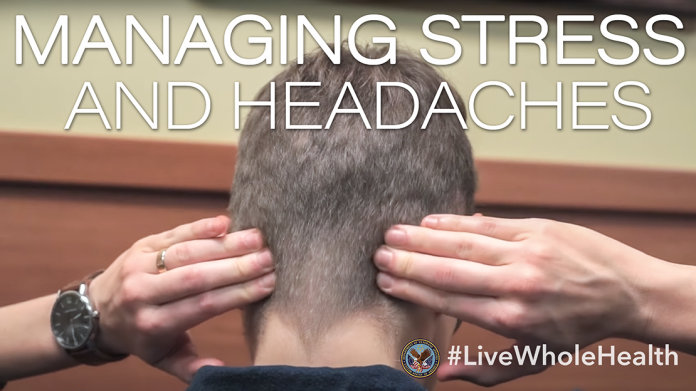
We all experience stress, which can lead to headaches and other negative outcomes.
I think of stress as the result of any demand on our resources beyond what we usually give. Stress can come from pain, financial struggles, a family argument or loss of a loved one. Stress can also be a part of life experiences, such as getting married, having a baby or going to a family reunion. These situations require us to step up and do more than we are accustomed to doing.
We can practice reducing stress by taking pressure off ourselves in other areas. During times of stress, we need to rest, eat nourishing food, and do activities or hobbies that bring us pleasure. We may realize that the physical experience of stress – including headaches and muscle tension – makes the situation even more difficult than it needs to be.
Learning how to reduce headaches and tension will help you manage life’s stressful circumstances – both positive and negative.
This 9-minute video from Licensed Acupuncturist Stephanie Gregory from the VA Portland Health Care System offers an acupressure self-care routine designed for people experiencing headaches. Taking a few minutes to try these exercises may help you ease your stress and better manage these new circumstances.
Did you know that the news can cause you stress?
In 2014, Harvard researchers asked 2,500 American adults what causes stress in their daily lives. Forty percent admitted that “watching, reading or listening to the news” was one of their top life stressors. Since then, more studies have shown that learning about bad news hurts our mental health more than listening to good news helps our mental health.
One of the top stressors in our lives is the constant cycle of news and information that we are taking in. Did you know that an information fast can also help you reduce stress and improve well-being? Negative news and information can negatively impact our health in the following ways:
- Increasing stress hormone (cortisol) levels in our body;
- Increasing depressive symptoms, loneliness and hopelessness;
- Creating feelings of anxiety that last beyond the news program;
- Making us feel more threatened by others around us;
- Triggering post-traumatic stress disorder (PTSD) symptoms.
Learn how to do an “information fast” to improve your sense of health and well-being here: TooMuchBadNews_Final508_07-25-2019.pdf (va.gov).

We understand how important it is to choose a chiropractor that is right for you. It is our belief that educating our patients is a very important part of the success we see in our offices.
